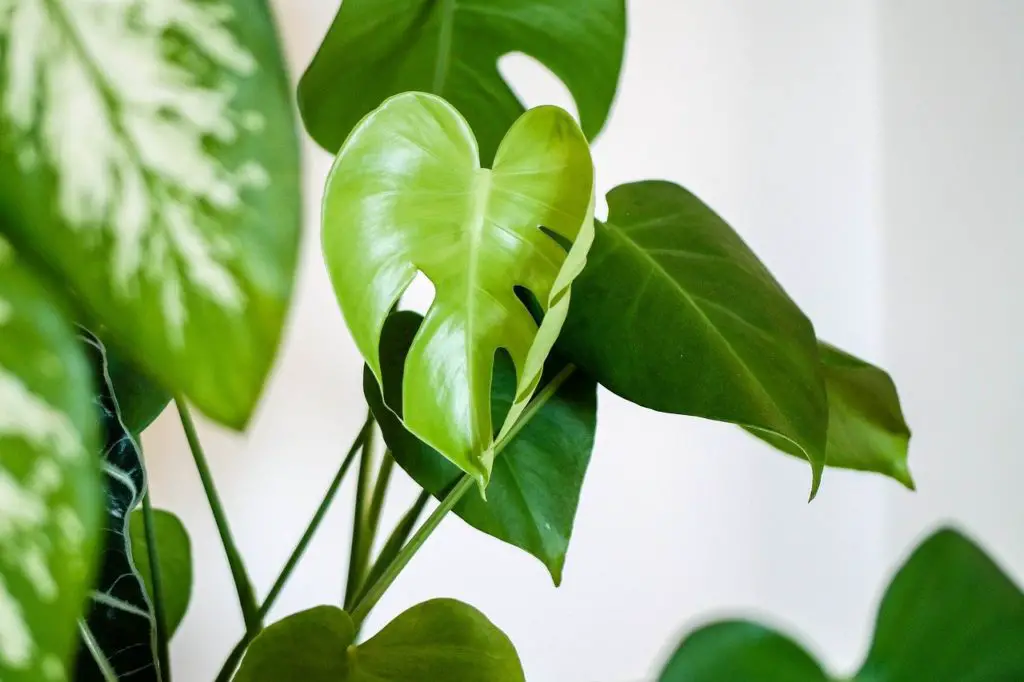Burning incense can be a stress-reducing and enjoyable experience, while the aromas produced are enjoyable in themselves. Many consumers include in their relaxation routine burning incense sticks or cones, or raw resin aromatics.
But while the benefits of burning incense now and then for humans are well established, many consumers wonder if incense smoke or ash is bad for houseplants.
This article will answer question of ‘does incense hurt plants?’, and will provide all the important information related to houseplant care for people who burn incense.
This is an important issue to anyone wanting to create a comfortable atmosphere in their homes through the use of foliage as well as scents.
After reading this article, anyone who wants to take care of their plants while creating an aromatic space in their home should have a good idea of how to proceed.
Does Incense Hurt Plants? The Short Answer
Incense Smoke
In terms of incense smoke, the typical amount of smoke that comes off burning incense is not enough to harm houseplants.
Incense users should just be sure to ventilate a space after enjoying the smoke’s aromas if they are worried about exposing the plants to it too much.
It’s a good idea to ventilate anyway. You won’t need to worry about smoke detectors going off, headaches, etc.
Incense Ashes
Put simply, the right kind of incense ash is not harmful but actually good for plants. The carbonized herbs and plants that the ash consists of have nutrients that living plants need.
However, the ash coming from incense should be all-natural, because the chemicals used to produce synthetic aromas can be harmful to plants.
Thus, overall, it is a good idea to take a look at the ingredient list if there is one available for a given incense product before ashing it in a plant. That said, manufacturers like to play coy as to whether their incense is natural or not, so it can be a challenge.
A Longer Explanation
The ash from natural incense can be a great fertilizer for houseplants, and there are many high-quality incenses out there that will serve just that function.
However many store-bought incenses are problematic for use as fertilizers since they contain synthetic scents and other ingredients like binders and preservatives.
All these ingredients might contain substances that are toxic to plants.
Importantly, however, incense sticks are usually produced with more natural ingredients than incense papers. Incense papers that are made from tree wood are of course preferable for plants to those made from wood-free plastics.
In addition, there is a higher chance that the ash from incense papers compared to sticks will contain enough harmful synthetic ingredients to be toxic for plants. Overall it is best to verify that your incense has only natural ingredients before putting its ash in houseplants.
If it does, the ash might be very good for houseplants. Since raw, loose aromatics like frankincense are less processed than products like incense sticks and cones, their ash may be safer to put in plants.
Product Information
Many incense consumers will want to find a producer that doesn’t use any synthetic ingredients or chemicals.
This knowledge will likely give them peace of mind about their own health as well as about that of their plants. CHAMS , for instance, is an incense manufacturer that is known for their use of only toxin-free ingredients.
Their natural wood incense sticks on Amazon are very popular. These sticks are also charcoal free, and create beautiful floral and herb scents.
Amazon also has a wide variety of stick holders and incense burners that will catch the ash. For example, Folkulture’s stick incense holder is a simple and easy-to-use burner.
Conclusion
Burning incense is a relaxing pastime and a way to create a comfortable atmosphere in the home. Moreover, the natural by-product of the activity–incense ash–sometimes functions as an excellent fertilizer for houseplants.
The nutrients found in the broken-down organic material from burnt incense are important for the survival of living plants. However, it is important to understand that not all incense ash will be good for plants, since some incense is not made from only natural ingredients.
Many store-bought incenses contain toxins from synthetically produced aromas. In high enough quantities, these ingredients can harm plants rather than fertilize them. So while some incense hurts plants, other, higher quality incense produces ash that is good for plants.
That is why overall, it is best for anyone considering ashing their incense into their plants to first determine the exact ingredients of the incense they’ve been using. And if consumers are concerned about smoke harming plants, they should just be sure to ventilate their home well after enjoying their incense.





